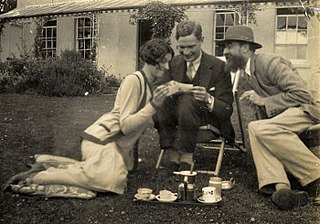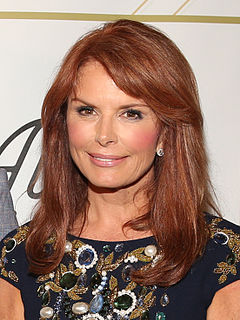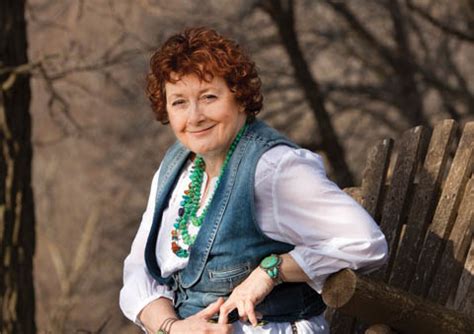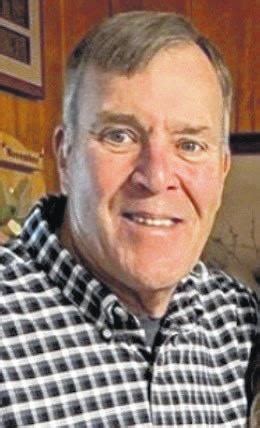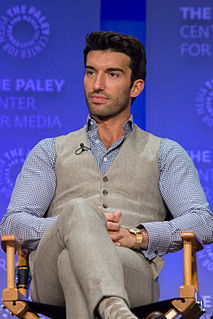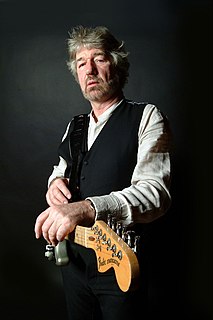Top 1200 Jane Austen Novel Quotes & Sayings - Page 5
Explore popular Jane Austen Novel quotes.
Last updated on December 18, 2024.
Jane Francklyne, born in 1565, had lived for less than a month. She left very little behind. She was buried in the Ecton churchyard, but her father would hardly have paid a carver to engrave so small a stone. If not for the parish register, there would be no record that this Jane Francklyne had ever lived at all. History is what is written and can be found; what isn't saved is lost, sunken and rotted, eaten by the earth.
I was a kid when I read Jane Eyre and fell in love with that universe. I didn't have the acumen to say the prose is old or the prose is too complex. I just fell in love with Jane's very lonely soul, much the same way I fell in love with Frankenstein's creature for the same reason. Those old souls exist in every decade in every century.
No writer, I believe, should attempt a novel before he is thirty, and not then unless he has been hopelessly and helplessly involved in life. For the writer who goes out to find material for a novel, as a fishermen goes out to sea to fish, will certainly not write a good novel. Life has to be lived thoughtlessly, unconsciously, at full tilt and for no purpose except its own sake before it becomes, eventually, good material for a novel.
I wish I could tell you to always follow your heart, but I think it is bad advice. You have a heart, yes, it is true, but also a brain and also a soul. I've come to believe that we love with our brains as much as our hearts. Real Love is not just instinct, but intent...... From year to year, you may not always be the same Jane. This is perfectly normal. A Jane is many Janes in a lifetime.
I'm skeptical that the novel will be "reinvented." If you start thinking about a medical textbook or something, then, yes, I think that's ripe for reinvention. You can imagine animations of a beating heart. But I think the novel will thrive in its current form. That doesn't mean that there won't be new narrative inventions as well. But I don't think they'll displace the novel.
I started reading seriously at seven or eight, books about myths and legends, the Narnia series. By the time I was 11, I had read all the children's books in my local library, so I moved on to 'Jane Eyre.' What I loved about Jane Eyre was that she didn't rely on her looks but her character. She had a spirit nobody could break.
Jane was my wicked stepmother: she was generous, affectionate and resourceful; she salvaged my schooling and I owe her an unknowable debt for that. One flaw: sometimes, early on, she would tell me things designed to make me think less of my mother, and I would wave her away, saying, Jane, this just backfires and makes me think less of you.
If I'm writing a novel, I'll probably get up in the morning, do email, perhaps blog, deal with emergencies, and then be off novel-writing around 1.00pm and stop around 6.00pm. And I'll be writing in longhand, a safe distance from my computer. If I'm not writing a novel, there is no schedule, and scripts and introductions and whatnot can find themselves being written at any time and on anything.
I've no objection to the term 'graphic novel,' as long as what it is talking about is actually some sort of graphic work that could conceivably be described as a novel. My main objection to the term is that usually it means a collection of six issues of Spider-Man, or something that does not have the structure or any of the qualities of a novel, but is perhaps roughly the same size.
In '94, I started writing a novel about an enormous terrorist act that destroyed the United States. The novel takes place twenty years after this destruction, with all the stuff that we're dealing with now - a dirty war, the disappeared, the concept of terrorism. Anyway, 9/11 happened some years into the process, and I was like, OK, I don't have a novel.
I'm always trying to make something that is impossible to film. Why would somebody just read a novel when they can see it on TV or in the cinema? I really have to think of the things fiction can do that film can't and play to the strengths of the novel. With a novel, you can get right inside somebody's head.
Well, people have been wondering what's going to happen to the novel for two hundred years; its death has been announced many times. You know, I think the novel keeps redefining the world we live in. What you should look for in a novel is a window nobody else is looking out of, that nobody else can look through. What you look for is a voice. You pick up a novel by someone such as Faulkner or Hemingway and you just read three pages and you know who wrote it. And that's what one should demand of a novelist.
In general, I think every novel is a political novel, in that every novel is an argument about how the world works, who has power, who has a voice, what we should care about. But political novels can be boringly polemical if they end up being too black and white, too one dimensional, like war is bad, killing people is wrong.
If someone does learn about the world from reading a novel of mine, that makes me very happy. It's probably not what brings me into the novel in the first place - I usually am pulled in by some big question about the world and human nature that I'm not going to resolve in the course of the novel. But I'm very devoted to getting my facts straight.
I made a film called "The Theory of Everything," which is based on Jane Hawing, who was married to Stephen Hawking - it's based on her book about their relationship.That's what the film will be about - they were both incredible, strong, willful individuals and I feel like that Stephen Hawking himself would say that he wouldn't have survived without the influence of Jane Hawking, and they were an incredible team together.
Once she made him watch Pride and Prejudice and for ages he would re-word Mr Bingley's apology to Jane Bennet, saying, 'I've been an inexplicable fool', for anything from losing his keys to burping out loud. Her reply to anything she wanted to do was Jane Bennet's response to Bingley's marriage proposal, 'A thousand times yes.
There is a document in every novel in the world. Even in the most fantastic novel, even in science fiction, there is a documentary side. But, this side is not the crux of the matter. I don't think a novel's main donation, main gift, is the document. The document is there, but a novel goes beyond documentation. It goes into opening a new vista, opening a new perspective, showing familiar things in an unfamiliar way.
Jane was my wicked stepmother: she was generous, affectionate and resourceful; she salvaged my schooling and I owe her an unknowable debt for that. One flaw: sometimes, early on, she would tell me things designed to make me think less of my mother, and I would wave her away, saying, 'Jane, this just backfires and makes me think less of you.'
In reading a novel, any novel, we have to know perfectly well that the whole thing is nonsense, and then, while reading, believe every word of it. Finally, when we're done with it, we may find - if it's a good novel - that we're a bit different from what we were before we read it, that we have changed a little... But it's very hard to say just what we learned, how we were changed.
She divorced her husband, y' know. I never knew him, it was before I met Jane. Apparently she came back from work one mornin' an' found her husband in bed with the milkman. With the milkman, honest to God. Well, apparently, from that day forward Jane was a feminist. An' I've noticed, she never takes milk in her tea.





